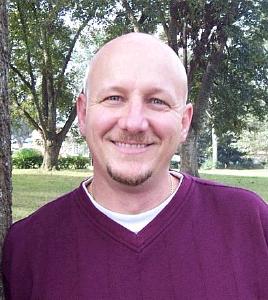Canton mayor has a track record of turning dreams into reality
Beware of "Pruett's Pipe Dreams." They might just come true.
Cecil Pruett, mayor of Canton — the Cherokee county seat — since 1996, came to office with so many ideas that town residents began to refer to them as "Pruett's Pipe Dreams."
He wanted the city to buy and restore an old theater downtown. Done.
He wanted the city to create its own bus transit system offering free rides for everyone. Done.
He wanted Canton's downtown area to have new sidewalks, pedestrian crossings, flower pots, new lighting and street furniture. Done.
He wanted the vacant buildings downtown to be filled with businesses. Done.
Now Pruett wants the city to transform a 130-acre area next to the center of town into a thriving community with residences, quality retail, parks and restored historic buildings.
Five years ago, Canton received one of the Atlanta Regional Commission's Livable Centers Initiative grants to design a plan for that transformation. Since then, Canton has been busy implementing physical public improvements to the area to prepare it for development.
A recently formed advocacy group, the Livable Communities Coalition, has selected Canton as one of its first four projects to help find solutions to turn the plans into reality, according to Jim Durrett, the coalition's executive director. "You've got a real jewel of an opportunity here, and we want to share that story," Durrett told Pruett last week. "You have an opportunity to be a great example for the region."
For Pruett, working with the coalition is another way to turn his dreams into reality. In fact, Pruett has a long history of finding partners and joining forces. Two women instrumental in the renaissance of Canton are Melanie Whitt, Canton's director of economic development since 1996; and Marie Garrett, a planning consultant who has helped the city adopt new zoning ordinances and develop its plans.
While Whitt and Garrett are quick to credit Pruett for providing the vision, they have become a two-woman tag team adept at securing grants and support from various government agencies.
The centerpiece of Pruett's latest pipe dream is the River Mill District, anchored by a 1900 textile mill that closed in 1981. The mill stands next to the railroad tracks, near a large green field that leads to the Etowah River. A restored mill, along with new development, would help Canton open back up to its origins — the river and the railroad.
Plus, it would be a way to extend the efforts that have transformed downtown Canton to include a larger area.
"We want to create parks and recreation along the river and preserve that area," Pruett says. "We want to put together a complete city with jobs, shopping, parks — the things people need and want to make their lives complete."
For him, the 130-acre district enables Canton "to do something very, very special that creates excitement and involvement in a close-knit area."
Still, the project is complicated. The land is owned by various private property owners. The existing mill villages have tiny streets with no room for sidewalks. The topography of Canton is extremely hilly, making development more difficult. And the flat areas near the river are in the flood plain — which can best be used for passive green space rather than for infill development.
But it's not as though Pruett and his gang haven't overcome challenges before. Pruett moved to Canton 40 years ago to work in private business. In his job, he was able to travel the world — Japan, China, Europe and South Africa — to see how cities worked in other countries.
"When my wife talked me into running for mayor, I felt like our city was at a crossroads," Pruett says. "We could become an also-ran, or we could become a city that was very special. We had an opportunity to plan our city before we were inundated with the growth we knew was coming."
In 1990, Canton's population was 4,980; in 2000, it had climbed to 7,780. Whitt says estimates show the city has close to 15,000 residents, and it is projected to have as many as 44,000 residents by 2015. The community also is diverse, with a Latino population of more than 20 percent.
Because its population could triple in 10 years, Canton wants to make sure it grows so that its residents can attain a high quality of life.
That's where the coalition comes in.
The coalition is partnering with Canton to build consensus among property owners, to help remove any obstacles and to help generate development interest in the community.
Meanwhile, Pruett and his team continue to dream. They hope that one day, sooner rather than later, Canton will be connected to the region with a commuter rail stop. In the meantime, its bus service carries riders so they can connect to CCT (Cobb Community Transit), which has routes to several spots, including downtown Atlanta. Canton provides a beacon for our region by demonstrating how leadership and planning help create healthy communities.
So keep on dreaming, Mayor Pruett.
By Maria Saporta
Tuesday, May 16, 2006
Subscribe to:
Post Comments (Atom)

No comments:
Post a Comment